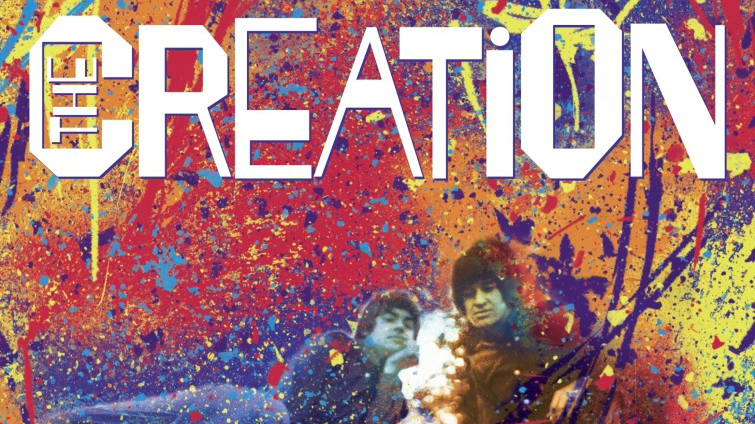It’s hard to trace a link between Alan McGee and Boney M, what with one having made shedloads of money mentoring Primal Scream, Oasis, JAMC, Libertines et al, and the other being a charming German-Caribbean pop act who bossed the 70s, but The Creation provide it. The 60s-formed cult band gave their name to both the former’s record label and band (Biff Bang Pow), while a cover of The Creation’s hit Painter Man was bizarrely a Top 10 hit for Boney M in 1979. The Creation’s flame, or ashes, has been fanned into legend. Some see them as hugely influential, the great lost pioneering psychedelic Pop-Art act of their time, while others wonder why the bluesy knockings of a bog-standard beat combo are held in such reverence.
This five-disc book set gathers an anthology of their often-interrupted works, from their sharp early singles through their first album – recorded in 1987 but unreleased till 2004 – to the 1995 album funded by uber-fan McGee’s Creation label. There are also solo tracks from guitarist Eddie Phillips (famed for playing with a violin bow before Jimmy Page), and the bonus DVD collects live/TV footage from their undeniably electric 60s heyday and the 90s reunion. It will thrill converts, but for newcomers the whole nine yards may be too much of a moderately good thing.
Beginning as the Hertfordshire-based The Mark Four, The Creation’s Shel Talmy productions are a fiery blast of what used to be R&B, offering stabs at everything from Rock Around The Clock to Cool Jerk, from Like A Rolling Stone to Hey Joe. Their own Sylvette and Making Time produce more sparks, while Painter Man is a genuinely intriguing oddity. Frontman Kenny Pickett, enamored of Peter Blake, Alan Aldridge and the like, would indeed spray-paint canvases onstage (which a roadie would then set alight). The song Biff Bang Pow, too, was coloured by Lichtenstein-ish exclamations.
Despite Ronnie Wood joining briefly, they vanished awhile, short on sales, and lived in the land of mythology: the swinging Who/Kinks that never made it but influenced Paul Weller. Yet the ’87 would-be comeback album Psychedelic Rose portrays them as plodding rockers, the pile-up of guitars a blatant influence on Oasis and even Ride. Still McGee wouldn’t let them expire, and the ’96 album Power Surge is more of the same, but creakier; Slade on sleeping pills. They should be glorified for their initial in-the-moment blaze of glory, not the later well meant exhumations.

